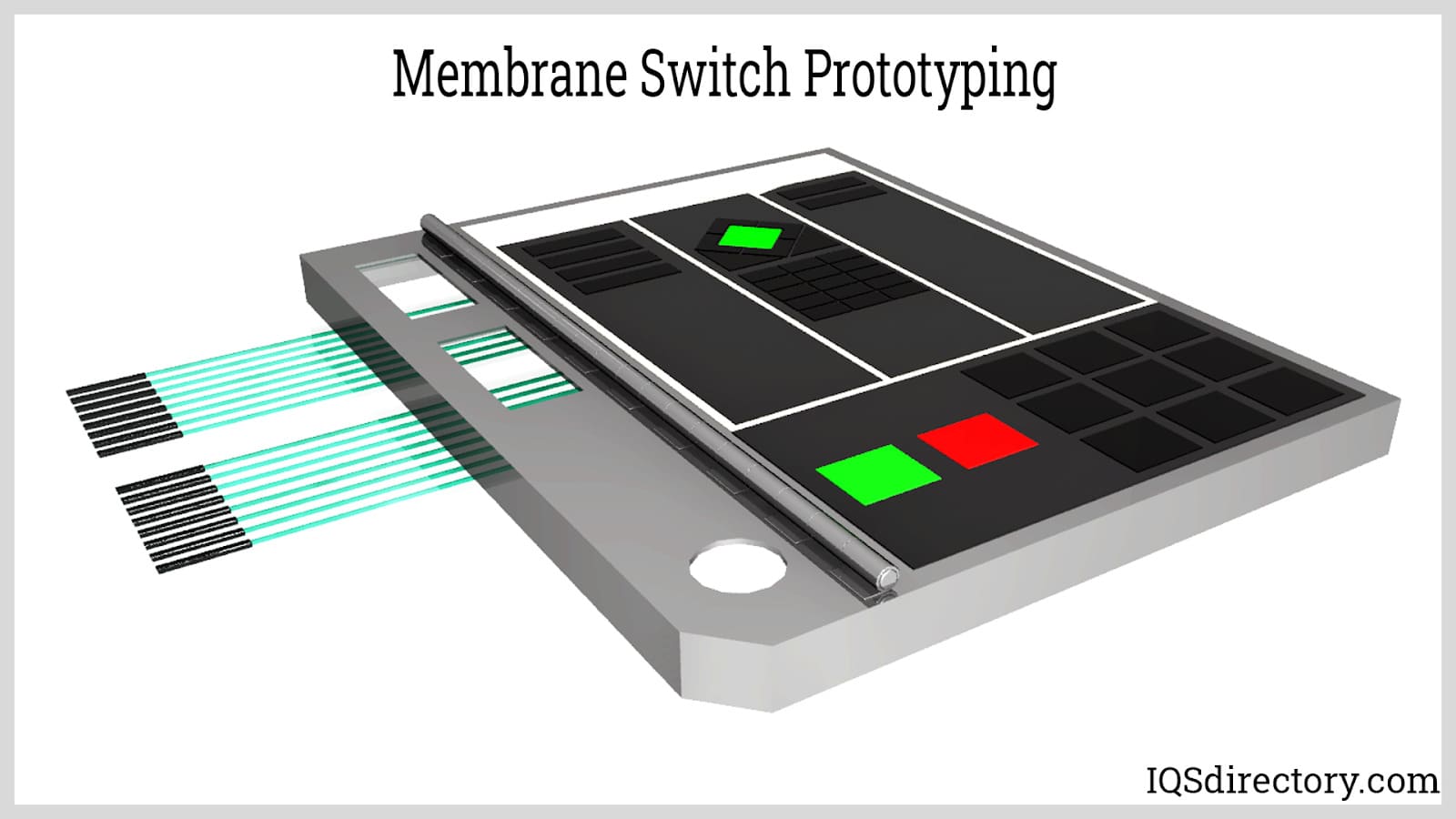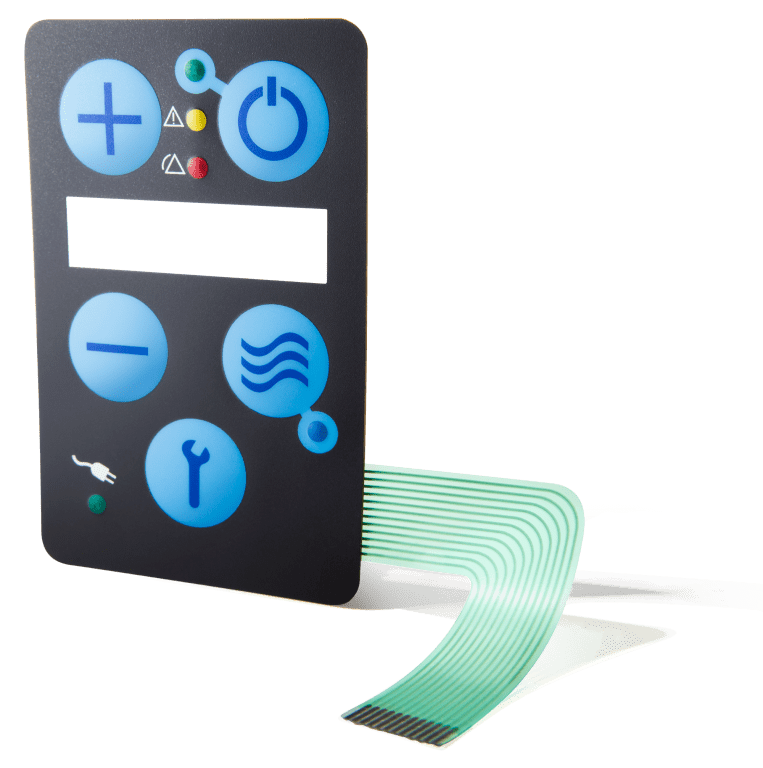How Membrane Switches Are Used to Improve Safety and Functionality in Manufacturing Systems
How Membrane Switches Are Used to Improve Safety and Functionality in Manufacturing Systems
Blog Article
Exploring the Conveniences of Membrane Layer Switches for Modern Electronics
The expedition of membrane buttons in modern digital devices provides a remarkable viewpoint on their myriad advantages, especially in terms of layout versatility, resilience, and cost-effectiveness. As sectors proceed to advance, the role of membrane layer buttons in improving user experience and operational effectiveness warrants closer assessment.
Benefits of Membrane Switches
Membrane layer switches are significantly preferred in modern electronic devices as a result of their various advantages. Among the key benefits is their portable layout, which enables space-efficient assimilation into various gadgets. This slim profile not just conserves space but likewise adds to the total visual appeal of electronic items.
Another benefit is their sturdiness. Membrane buttons are typically resistant to wetness, dirt, and impurities, making them ideal for use in environments where exposure to severe conditions is an issue. This resistance expands the life expectancy of the buttons, decreasing the need for regular substitutes and upkeep.
Moreover, membrane switches offer outstanding responsive responses, boosting customer experience. The responsive feedback is often designed to offer a gratifying experience upon activation, which can enhance user fulfillment and performance.
In addition, the production process of membrane switches is cost-efficient, permitting for reduced manufacturing costs compared to traditional mechanical buttons. This cost makes them ideal for a wide variety of applications, from consumer electronic devices to industrial machinery.
Design Adaptability and Customization
The layout adaptability and modification choices provided by membrane switches over better improve their appeal in modern electronic devices. These buttons can be customized to fulfill certain aesthetic and practical requirements, permitting suppliers to develop gadgets that align carefully with brand identity and individual preferences. With different options in regards to shades, shapes, and dimensions, membrane layer switches can seamlessly incorporate into varied item layouts, whether for customer electronics, commercial applications, or medical devices.
Moreover, the capacity to integrate graphics and icons straight onto the switch surface area boosts functionality while reducing the requirement for added labeling. This assimilation not only streamlines manufacturing processes yet also adds to a sleeker overall appearance. The design can be additional personalized with functions such as backlighting, tactile responses, and multi-layer constructions, offering enhanced customer interaction.

Toughness and Ecological Resistance

Additionally, membrane layer buttons can be crafted to be chemically resistant, making them ideal for applications in commercial environments where exposure to solvents and cleaning representatives prevails. The encapsulation of electronic elements within the membrane layer structure offers extra security against environmental tensions, guaranteeing trustworthy efficiency even in tough problems.
In enhancement to physical toughness, membrane switches exhibition outstanding resistance to UV light, avoiding degradation and staining with time (membrane switch). This characteristic is specifically valuable for exterior applications, where long term exposure to sunlight can compromise other button kinds
Ultimately, the sturdiness and environmental resistance of membrane layer switches make them an optimal selection for a variety of contemporary electronic tools, from clinical equipment to customer electronic this content devices, guaranteeing consistent functionality and customer fulfillment across numerous applications.
Cost-Effectiveness in Manufacturing
Cost-effectiveness in production is a significant benefit of membrane buttons, making them a recommended option for manufacturers in numerous industries. The manufacturing process of membrane changes generally entails fewer products contrasted to traditional switches, which minimizes resources costs. This structured manufacturing process not just conserves money yet also reduces waste, lining up with contemporary sustainability objectives.
Furthermore, membrane layer switches can be generated utilizing automated techniques, permitting high-volume output with minimized labor prices. The integration of sophisticated printing innovations better improves performance, enabling makers to achieve intricate styles and capabilities without incurring considerable added expenditures. This scalability guarantees that production can adapt to transforming market demands without compromising high quality or raising costs.

Additionally, the lightweight nature of membrane layer switches over adds to cost financial savings in delivery and handling, as well as in the general layout of digital tools. By eliminating bulky components, producers can enhance the general product style, therefore boosting market competitiveness. Generally, the cost-effectiveness of membrane layer switches this content not just benefits makers financially but likewise helps with advancement and fast product growth in the vibrant landscape of modern-day electronics.
Applications in Different Industries
Versatility stands apart as a hallmark of membrane switches, allowing them to locate applications throughout a vast array of sectors. In the medical care field, these buttons are important to clinical gadgets, offering user-friendly user Continue interfaces for equipment like mixture pumps and analysis devices. Their resistance to moisture and easy cleansing make them optimal for environments requiring stringent health criteria.
In the vehicle industry, membrane buttons add to the performance of dashboards and control panels, supplying a smooth, modern appearance while making certain longevity versus severe problems. Their lightweight design additionally sustains overall vehicle performance.

Furthermore, commercial equipment employs membrane layer buttons for operational controls. Their durable nature and personalized features provide to the particular demands of diverse applications.
Conclusion
In verdict, membrane switches over offer substantial advantages for contemporary electronic devices, including style flexibility, longevity, and cost-effectiveness. membrane switch. Their adjustable features and resistance to ecological aspects make them appropriate for a vast variety of applications throughout various markets. As technical demands continue to progress, the versatility and effectiveness of membrane layer switches over position them as an essential component in enhancing customer experience and driving development within the affordable landscape of digital devices
Report this page